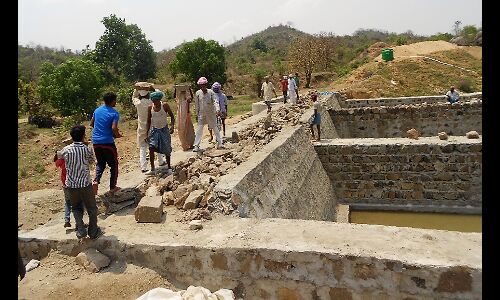Ancient India holds key to solving water crisis
18 May 2018 8:30 AM IST
As the Indian government is inking deals with foreign countries like Israel and Canada, the solution is there in India's rich traditional past. This is the second of a 3-part series about water crisis in India.
 Budha Budhi check dam being built under the aegis of Aakar Charitable Trust led by Mrs. Amla Ruia in Rajasthan. Villagers pitch in with either monetary aid or manual labour during the development.
Budha Budhi check dam being built under the aegis of Aakar Charitable Trust led by Mrs. Amla Ruia in Rajasthan. Villagers pitch in with either monetary aid or manual labour during the development.
0
Next Story



